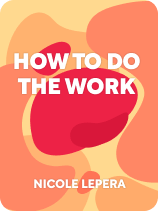

This article is an excerpt from the Shortform book guide to "How to Do the Work" by Nicole LePera. Shortform has the world's best summaries and analyses of books you should be reading.
Like this article? Sign up for a free trial here.
What are the effects of high stress levels? How does chronic stress affect your health? How can you reduce high stress levels?
Nicole LePera, who wrote the self-help book How to Do the Work, claims that feeling emotional distress as a child trained your subconscious mind to categorize many safe situations as threatening. She says that a consequence of experiencing these situations is suffering from high stress levels as an adult.
Keep reading to learn the effects of high stress levels, including a calming technique, according to LePera.
High Stress Levels & Your Health
High stress levels create an accumulation of stress hormones that contribute to numerous mental and physical symptoms. Chronic stress affects your:
- Hormones: Leads to increased heart rate and high blood pressure
- Immune system: Makes you more vulnerable to illnesses and infections
- Sleep: Prevents your mind from relaxing
- Brain: Increases cognitive decline
- Digestion: Damages your gut (indigestion, vomiting, constipation)
Your subconscious mind reacts to threats before you get a chance to consciously assess them. For example, your fear of dogs as a child made your subconscious mind categorize all dogs as threats. Even if you’ve consciously decided that most dogs are safe, you’ll still feel the rush of your high stress levels and hormones each time you see one.
High stress levels compel you to act irrationally: When you feel stress, your amygdala acts as if you’re in danger—it ensures that you respond automatically to threats by inhibiting the thinking part of your brain (the hippocampus). This makes it difficult for you to think objectively about what you’re experiencing—thus leading to irrational responses.
Continuing with the preceding example, while you consciously know that most dogs are safe, you’re unable to access the part of your brain that holds this knowledge. As a result, you give in to your instinctive fear and automatically carry out your “irrational” defensive pattern. This behavior is irrational because you consciously know that there’s nothing to fear.
The Emotional Freedom Technique
If you’re concerned about your high stress levels, there are steps you can take to alleviate them and improve your health. Many self-help practitioners argue that you can overcome your automatic stress response if you find ways to deal with “threats” before you’re faced with them. The Emotional Freedom Technique (EFT), otherwise known as Emotional Freedom Tapping, is an effective way to calm your response to stressful situations. The process involves:
- Accepting that you feel negative emotions and calming your body’s response to them
- Understanding why certain things feel threatening
- Releasing your fear and negative emotions
- Replacing your unwanted emotions with calm or positive emotions

———End of Preview———
Like what you just read? Read the rest of the world's best book summary and analysis of Nicole LePera's "How to Do the Work" at Shortform.
Here's what you'll find in our full How to Do the Work summary:
- How childhood conditioning impacts your mental and physical health
- How to develop positive patterns that improve your well-being
- Tools to feel happier, healthier, and more in control of your life






